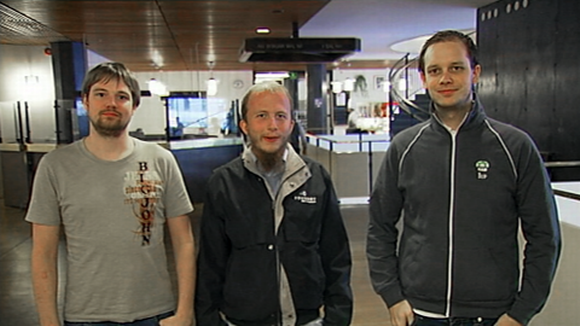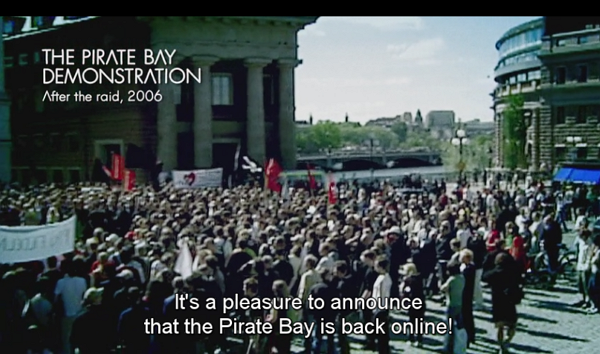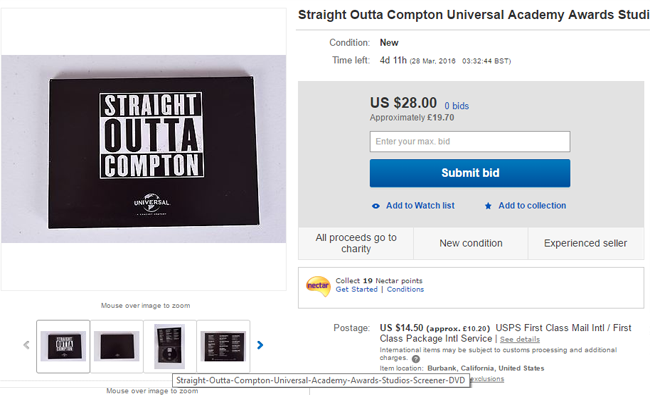 One might think that if a copyright holder would like to chase down alleged pirates in the UK it would be a relatively simple affair. Track their IP addresses and obtain their identities from ISPs, hire a lawfirm, send out the letters, and wait for the cash.
One might think that if a copyright holder would like to chase down alleged pirates in the UK it would be a relatively simple affair. Track their IP addresses and obtain their identities from ISPs, hire a lawfirm, send out the letters, and wait for the cash.
However, that’s been tried before and it has universally ended in tears for the lawfirms involved. As a result, copyright trolls are now deploying the new tactic of sending the letters via a limited company.
This is a pretty good idea. Not only do these companies avoid the scrutiny of the Solicitors Regulatory Authority but if it all goes wrong in a messy court battle, for example, the limited company can simply cease trading. It’s happened before.
The tactic is being employed by at least two sets of trolls and their partners in the UK. Golden Eye International, for example, is the front company acting for a number of porn copyright holders. By troll standards their operation seems relatively straightforward, but the same cannot be said of TCYK.
TCYK stands for The Company You Keep, a Robert Redford film that’s being used as a money generator by TCYK LLC, a US-based outfit attempting to turn piracy into profit. They’ve just accused an 82-year-old woman of being a movie pirate, which prompted intervention from her “disgusted” local MP.
However, instead of setting up in the UK themselves to chase alleged pirates themselves, TCYK employ the services of a company called Hatton and Berkeley. This is where things get messy.
According to the UK government’s Companies House database, the sole director of Hatton and Berkeley is a man called Paul Carter yet according to his various claims in the media and on his website, Robert Croucher says he is both managing director and owner.
In fact, according to public records Robert Croucher has never been listed as any kind of director of the company nor listed as having had any kind of shareholding. Croucher also claims to be personally based at 43, Berkeley Square in London while dozens of companies share the same address. It appears to be a virtual office.
Only complicating matters is that when alleged pirates receive ‘pay-up-or-else’ letters from Hatton and Berkeley on behalf of TCYK LLC, they aren’t told to pay either.
Instead they are told to send money to a third company called Ranger Bay Ltd, a company operated by a Marcus Auton. A former Bank of America employee and experienced accountant, Auton makes no mention of his copyright troll links on his Linkedin profile but TF has confirmed that his company is receiving money from suspected pirates.
Underlying the TCYK/Hatton and Berkeley/Ranger Bay operation are links with notorious copyright troll Patrick Achache, who is up to his neck in copyright litigation in the United States and elsewhere. Robert Croucher has made no secret of his affiliations with Achache, even posing with him for pictures while announcing a copyright troll invasion of the UK last October.
There can be no doubt that these kinds operations are set up in a complex manner, with some believing the tiered structure is deployed as a defensive mechanism in case everything goes wrong via a failed court action, for example. Of course, that is denied by those involved but not everyone is so keen to accept that at face value.
One of the most persistent troll-watchers in the UK is known as Joe Hickster. He runs the ACS Bore blog (Twitter) which was set up to undermine the activities of the now-defunct ACS:Law but has since expanded to cover any and all copyright troll-affiliated companies operating in the UK.
There’s no denying that Hickster is both persistent and at times abrasive, but he’s a man on a mission who feels it is his duty to help people wrongly accused by trolls. Indeed, Hickster is responsible for at least dozens (he doesn’t keep count) of people not paying companies like ACS:Law, GoldenEye and now Hatton and Berkeley/TCYK/Ranger Bay many tens (maybe hundreds) of thousands of pounds.
Now, however, things are getting messy. It began last year when Robert Croucher weighed in on a four year old discussion on phone number database site WhoCallsMe about a company called Westone Business Services Ltd.
Westone (which has Hatton and Berkeley’s current director Paul Carter also listed as a former director) were being called out by reviewers as “scammers” who apparently took their money for business services and ran. Croucher stepped in with his opening lines.
“To whom it may concern, I am Robert Croucher. I have no affiliation to Mr Paul Carter,” he said.
As previous highlighted, Companies House begs to differ. In fact, the government database indicates the pair having been involved in several companies together – here, here, here and here.
All of this information came to the attention of Joe Hickster who stepped into the discussion on March 22 to add his opinion.
“Seems that CMI Business Group (t/a Hatton & Berkeley) are really a Speculative Invoicing outfit, in association with the notorious Patrick Achache, who assisted ACS:LAW and Tilly Baily Irvine, in their actions in sending thousands of letters to people in the UK demanding money for Pornography or other films and threatening to go to Court if they were not paid,” he said.
From there things went quickly downhill. People can read the full exchange here but in summary Hickster accused Croucher of being involved in a “smoke and mirrors” operation, Croucher took offense, and the gloves came off.
“Your previous accusations that Paul Carter is the owner and director of Hatton & Berkeley is flawed, I would advise scrutiny over any of your research from hereon,” Croucher said.
Again, Companies House lists Paul Carter as Hatton and Berkeley’s sole director. Nevertheless, Croucher continued.
“Due to the nature of your defamatory and unsubstantiated remarks above, I shall be seeking legal action against you should this continue,” he said.
The exchanges continued and then Croucher dropped the bombshell.
“You and others have been sending false and defamatory Tweets to myself and worryingly the more junior female members of my staff, this is being reported to the MET Police as it is continued harassment (see Malicious Communications Act 1988),” he told Hickster.
“I will be seeking that charges be brought against you should you not cease and desist from contacting myself, members of my staff or other officers of any of my operating companies. This is being taken very seriously and I believe you are underestimating the impact of your actions.
“To summarise; Please stop contacting me, any of my staff and certainly any of my clients, should you continue I will ensure that you are put to maximum task with respect to issuing legal proceedings against you for ongoing harassment and defamation,” he warned.
TorrentFreak caught up with Joe Hickster who denied harassment.
“I would not DREAM of harassing, ANY innocent person, whether they are young woman or men or pensioners. I would obviously leave that in [Croucher’s] more than capable hands, he has more experience at doing that than I,” he said.
While it’s not unusual for anti-troll activists to hold their battles in public, it’s quite extraordinary for their targets to duke it out on the Internet. Where this will go from here is anyone’s guess, but one thing is for certain. Robert Croucher’s business affairs (and those of the companies he’s involved with) seem far from straightforward and one way or another, with or without Joe Hickster, anti-troll activists in the UK remain intent on exposing them.
Robert Croucher did not immediately respond to TorrentFreak’s request for comment
Source: TF, for the latest info on copyright, file-sharing, torrent sites and ANONYMOUS VPN services.

 For those interested in the pressures placed on large sites by governments, law enforcement, litigious third parties and copyright holders, transparency reports are wonderful things.
For those interested in the pressures placed on large sites by governments, law enforcement, litigious third parties and copyright holders, transparency reports are wonderful things.



 Underlying a multitude of strategies designed to limit traffic to pirate sites, there is a strong belief among copyright holders that operators only keep their sites online due to how profitable they are.
Underlying a multitude of strategies designed to limit traffic to pirate sites, there is a strong belief among copyright holders that operators only keep their sites online due to how profitable they are.














